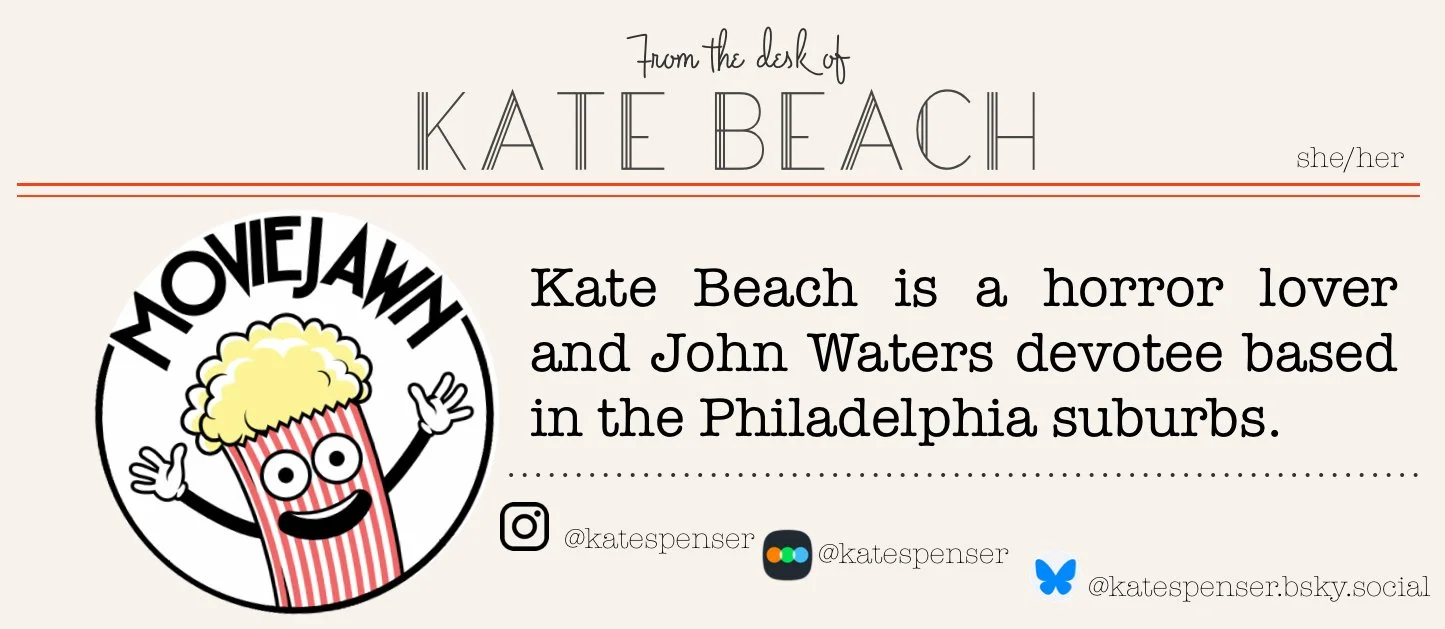ROUNDING has all the makings of a psychological thriller, but falls short
Rounding
Directed and Written by Alex Thompson
Starring Namir Smallwood, Sidney Flanigan, & Michael Potts
Unrated
Runtime: 1 hour and 30 minutes
In theaters and VOD February 14
by Kate Beach, Staff Writer
In 2024, Alex Thompson and Kelly O’Sullivan co-directed (and O’Sullivan wrote) Ghostlight. It was a quiet contender for one of the best movies of the year. A gentle family drama played out by an actual family (Chicago theater couple Keith Kupferer and Tara Mallen and their daughter Katherine Mallen Kupferer), plus a powerhouse performance by Dolly de Leon, Ghostlight was a deceptively complex and moving film. Before that, the couple collaborated on Saint Frances, a well-received indie dramedy directed by Thompson and written by O’Sullivan. Now, on Valentine’s Day, Thompson releases Rounding, directing solo from a script he also wrote. Shot in between Saint Frances and Ghostlight, Rounding marks a shift away from straightforward drama and into horror. While it succeeds in creating a tense, unsettling atmosphere, the story and the screenplay ultimately fall short.
Namir Smallwood stars as Dr. James Hayman, a young resident working at a hospital in the city. A tragic mistake leads to two months away from work and the need for a fresh start. He finds a new beginning in a hospital in a rural area where he can slow down, go jogging in the snow, and get his confidence back. However, this transition is more of a struggle than he anticipated. His new boss, Dr. Harrison (Michael Potts) criticizes James’s bedside manner, telling him that in a rural hospital, gaining trust and building a relationship with the patient is crucial. James is even sent to a mandatory class to better develop his communication with patients. He attempts to heed Dr. Harrison’s advice with Sidney Flanigan’s Helen, a young woman brought in for her asthma. It isn’t long before James begins to suspect there’s more going on with Helen than meets the eye. He asks more questions, orders more tests, and grows concerned that Helen’s mother may have something to do with her worsening condition. As James becomes obsessed with finding the truth, he begins to lose touch with reality.
There are a lot of ideas floating around in the ether of Rounding. It doesn’t seem entirely capable of drawing out the most important ones. It wants to touch on religion and trauma, guilt and paranoia, but the film doesn’t do much more than touch. Likewise, the characters other than James aren’t particularly fleshed out, especially Helen. To begin with, we don’t see enough of her to really justify James at least outwardly pinning his downward spiral on her condition. Maybe that was intentional; a way to show that James is so ripe for self-destruction that he’ll grasp the faintest whisper of a conspiracy. If so, it doesn’t feel intentional. Helen just comes across as a thinly drawn young woman.
The greatest asset Rounding has is Namir Smallwood. His portrayal of James is nuanced and compelling, and he does a wonderful job communicating the character’s physical and mental deterioration over time. He’s one of several elements of the movie that work, along with Sidney Flanigan as Helen. Despite the thinness of the character, Flanigan is quietly compelling. The look of the film is also one of its strengths, most of the time. Thompson has a great eye, and it’s on display throughout Rounding in the snowy hills where James runs and the cold, anxiety-inducing corridors of the hospital. When Thompson focuses on composing great shots that naturally stir dread as opposed to effects that don’t quite look convincing, the movie looks fantastic.
Ultimately, Rounding has elements of a great psychological thriller, and when they come together, Thompson creates some excellent moments. He’s a talented filmmaker, both on his own and in his collaborations with O’Sullivan. Rounding doesn’t always soar, but Thompson is an artist to watch.
Support MovieJawn Staff
〰️
Support MovieJawn Staff 〰️
With the death of so much print media and meaningful journalism, it is important now more than ever to support the writers and outlets you love.
If you enjoyed this article, show your support by donating to our writer. All proceeds go directly to the writer. Recommended donation is $5.




